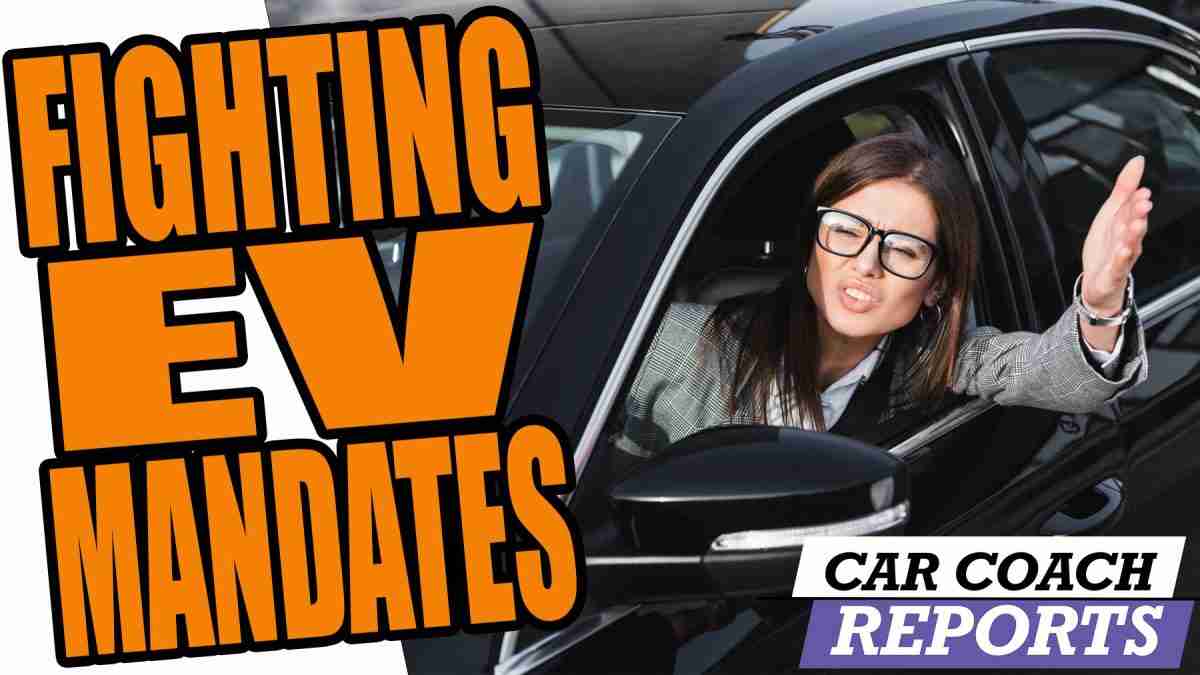Auto Dealers Intensify Fight Against Electric Vehicle Regulations

Table of Contents
Economic Concerns Fueling Dealer Opposition
Auto dealers are raising serious concerns about the economic viability of a rapid shift to EVs. The transition, they argue, threatens their profitability and long-term sustainability. Several key economic factors fuel this opposition:
- Reduced profit margins on EVs: EVs generally have lower profit margins for dealers compared to their Internal Combustion Engine (ICE) counterparts. This is due to factors such as lower parts and service revenue and the increased complexity of EV technology.
- High initial investment costs: Adapting to the EV market requires significant upfront investment. Dealers need to invest in charging stations, specialized EV servicing equipment, and employee training programs. These costs are substantial and not easily recouped, especially during the early stages of EV adoption.
- Decreased sales of profitable ICE vehicles: Stricter EV regulations, including potential bans on ICE vehicles, threaten the sales of highly profitable ICE vehicles that currently form a significant part of dealer revenue. This sudden shift can severely impact dealerships' bottom lines.
- Need for significant retraining: Sales staff needs retraining to effectively sell and service EVs. This involves understanding battery technology, charging infrastructure, and the unique features of electric vehicles. The cost and time involved in this training represent a significant financial burden.
- Potential for inventory overstock: If the projected demand for EVs falls short of expectations, dealers risk being left with an unsold inventory of expensive electric vehicles, leading to further financial losses.
Auto dealers argue that a more gradual transition, allowing for a smoother adjustment to the changing market dynamics, is vital to prevent significant economic disruption within the industry and maintain dealer profitability.
Infrastructure Gaps Hamper EV Adoption (and Dealer Preparedness)
The lack of robust charging infrastructure is a major hurdle to widespread EV adoption, and dealers are at the forefront of this challenge. Several infrastructural gaps significantly hinder the transition:
- Insufficient charging infrastructure: The current charging network is inadequate, especially in rural and suburban areas. This "charging desert" effect creates range anxiety among potential EV buyers, deterring them from making the switch.
- Concerns about grid capacity: The widespread adoption of EVs puts a strain on the existing electricity grid. Concerns about grid reliability and capacity are legitimate and need to be addressed before widespread EV adoption can be fully realized.
- Persistent range anxiety: Many consumers remain hesitant to buy EVs due to concerns about running out of charge before reaching a charging station. This range anxiety needs to be tackled through infrastructure improvements and advancements in battery technology.
- Lack of government investment: Dealers emphasize the need for greater government investment in a comprehensive nationwide EV charging network to address infrastructure limitations and build consumer confidence.
Until these infrastructure challenges are adequately addressed, dealers argue that government mandates for EV adoption are unrealistic and could severely damage the industry.
Lobbying Efforts and Political Influence
The auto dealer industry is actively engaged in lobbying efforts to shape EV regulations. Their actions highlight the significant political influence exerted by this powerful sector:
- Intense lobbying efforts: Auto dealer associations are actively lobbying government officials at local, state, and federal levels to influence the implementation of EV regulations.
- Collaboration with advocacy groups: Dealers are collaborating with various advocacy groups to oppose strict EV mandates and advocate for alternative solutions.
- Shaping government policy: These lobbying efforts aim to influence government policy, promoting a slower and more gradual transition to EVs that better suits their business models.
- Advocating for alternative solutions: The industry is proposing alternative solutions to reduce emissions, such as focusing on improving ICE vehicle efficiency or investing in alternative fuels, as a way to avoid the more disruptive shift to EVs.
This intense lobbying demonstrates the significant power of the auto dealer industry and its determination to shape the future of the automotive landscape.
The Role of Consumer Demand
Ultimately, consumer demand plays a pivotal role in the success of the EV transition. Several factors influence consumer purchase decisions:
- Consumer preferences: Understanding consumer preferences for vehicle types, features, and price points is crucial in determining the actual market demand for EVs.
- EV technology advancement: Advancements in EV technology, such as increased battery range and faster charging times, directly impact consumer acceptance and purchasing decisions.
- Price point: The price of EVs remains a significant barrier for many consumers. Lowering the price point and making EVs more affordable is critical for driving market adoption.
- Vehicle availability: The limited availability of certain EV models in the market also constrains consumer choices and overall market adoption.
Analyzing consumer demand and preferences is crucial for shaping EV regulations and ensuring a smooth transition to an electric future.
Conclusion
The escalating conflict between auto dealers and proponents of stringent electric vehicle regulations underscores the complex challenges facing the automotive industry. Economic concerns, inadequate infrastructure, and political lobbying all significantly influence this ongoing battle. While transitioning to electric vehicles is essential for environmental sustainability, policymakers need a balanced approach. This approach should consider the economic realities of auto dealers and address infrastructure limitations to ensure a successful and equitable transition. Continued dialogue and collaboration are crucial to find solutions that align environmental goals with the economic viability of the auto dealer sector. Let’s work towards a future where we can embrace the benefits of electric vehicles while building a sustainable automotive industry. What are your thoughts on the future of electric vehicle regulations and their impact on auto dealers? Join the conversation!

Featured Posts
-
 Solve The Nyt Mini Crossword Hints And Answers For Sunday May 11
May 18, 2025
Solve The Nyt Mini Crossword Hints And Answers For Sunday May 11
May 18, 2025 -
 Reddit Service Disruption Thousands Of Users Impacted Globally
May 18, 2025
Reddit Service Disruption Thousands Of Users Impacted Globally
May 18, 2025 -
 Shrek Mike Myers Concise Response
May 18, 2025
Shrek Mike Myers Concise Response
May 18, 2025 -
 Audience Reaction To Ego Nwodims Weekend Update On Snl
May 18, 2025
Audience Reaction To Ego Nwodims Weekend Update On Snl
May 18, 2025 -
 Amanda Bynes Joins Only Fans What We Know
May 18, 2025
Amanda Bynes Joins Only Fans What We Know
May 18, 2025
